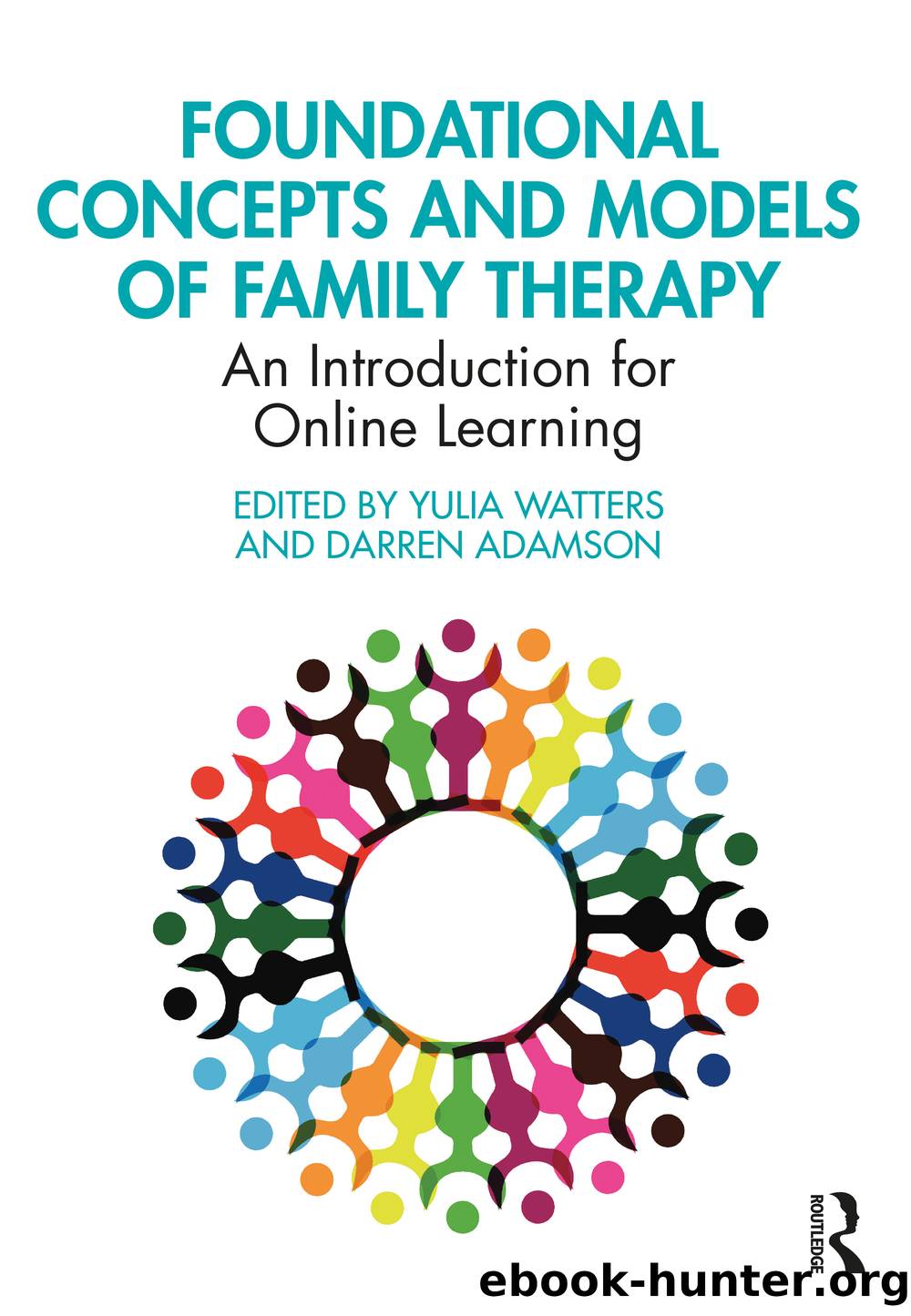Foundational Concepts and Models of Family Therapy by Yulia Watters;Darren Adamson; & Adamson Darren

Author:Yulia Watters;Darren Adamson; & Adamson, Darren
Language: eng
Format: epub
Publisher: Taylor & Francis (Unlimited)
Published: 2023-05-31T11:12:52+00:00
Founders
There are two people who shaped experiential family therapy at its inception â Carl Whitaker and Virginia Satir. Carl Whitaker originally trained as an obstetrician/gynecologist but decided to seek additional training in psychiatry in order to better understand his patients. After this experience, his subsequent positions were focused on psychiatry practice, including chair of the psychiatry department at Emory University (Whitaker, 1989). While working with patients suffering from Schizophrenia, he noticed a reemergence of symptoms when families were reunified with their families, which led him to wonder about the impact of family systems on individual symptomology (Whitaker & Keith, 1981). After resigning from Emory University in 1955, Whitaker founded (along with many of the faculty from Emory University) the Atlanta Psychiatric Clinic, where he turned his attention to the research and practice of what would become experiential psychotherapy (Napier & Whitaker, 1978). Napier and Whitaker were critical of theory and challenged therapists to focus more on being their authentic selves in therapy rather than spending too much time theorizing about what was happening in session.
Virginia Satir was a social worker who began in private practice in 1951. She was also part of the early days of the Mental Research Institute (MRI), where she served as the first director of training until 1966. Her therapeutic model emphasized enhancing familial communication and nurturing individual growth. She used a variety of techniques, including family sculpting, role-play and coaching to create new, in-the-moment experiences for families. She also made extensive use of warmth, empathy and self-of-the-therapist to facilitate change (Satir, 1972; Satir & Baldwin, 1983). Her change process model and nurturing approach served to help shape Experiential Family Therapy (Jencius, 2017; Nicholas & Schwartz, 2006).
Download
This site does not store any files on its server. We only index and link to content provided by other sites. Please contact the content providers to delete copyright contents if any and email us, we'll remove relevant links or contents immediately.
The Art of Thinking Clearly by Rolf Dobelli(8881)
The 5 Love Languages: The Secret to Love That Lasts by Gary Chapman(8550)
Mindhunter: Inside the FBI's Elite Serial Crime Unit by John E. Douglas & Mark Olshaker(7860)
Becoming Supernatural by Dr. Joe Dispenza(7129)
The Road Less Traveled by M. Scott Peck(6660)
Nudge - Improving Decisions about Health, Wealth, and Happiness by Thaler Sunstein(6651)
Enlightenment Now: The Case for Reason, Science, Humanism, and Progress by Steven Pinker(6423)
Win Bigly by Scott Adams(6334)
Mastermind: How to Think Like Sherlock Holmes by Maria Konnikova(6263)
The Way of Zen by Alan W. Watts(5817)
Factfulness: Ten Reasons We're Wrong About the World – and Why Things Are Better Than You Think by Hans Rosling(4035)
The State of Affairs by Esther Perel(3955)
Gerald's Game by Stephen King(3936)
Man's Search for Meaning by Viktor Frankl(3661)
The Confidence Code by Katty Kay(3580)
Thinking in Bets by Annie Duke(3545)
The Worm at the Core by Sheldon Solomon(2936)
Enlightenment Now by Steven Pinker(2927)
Liar's Poker by Michael Lewis(2824)
